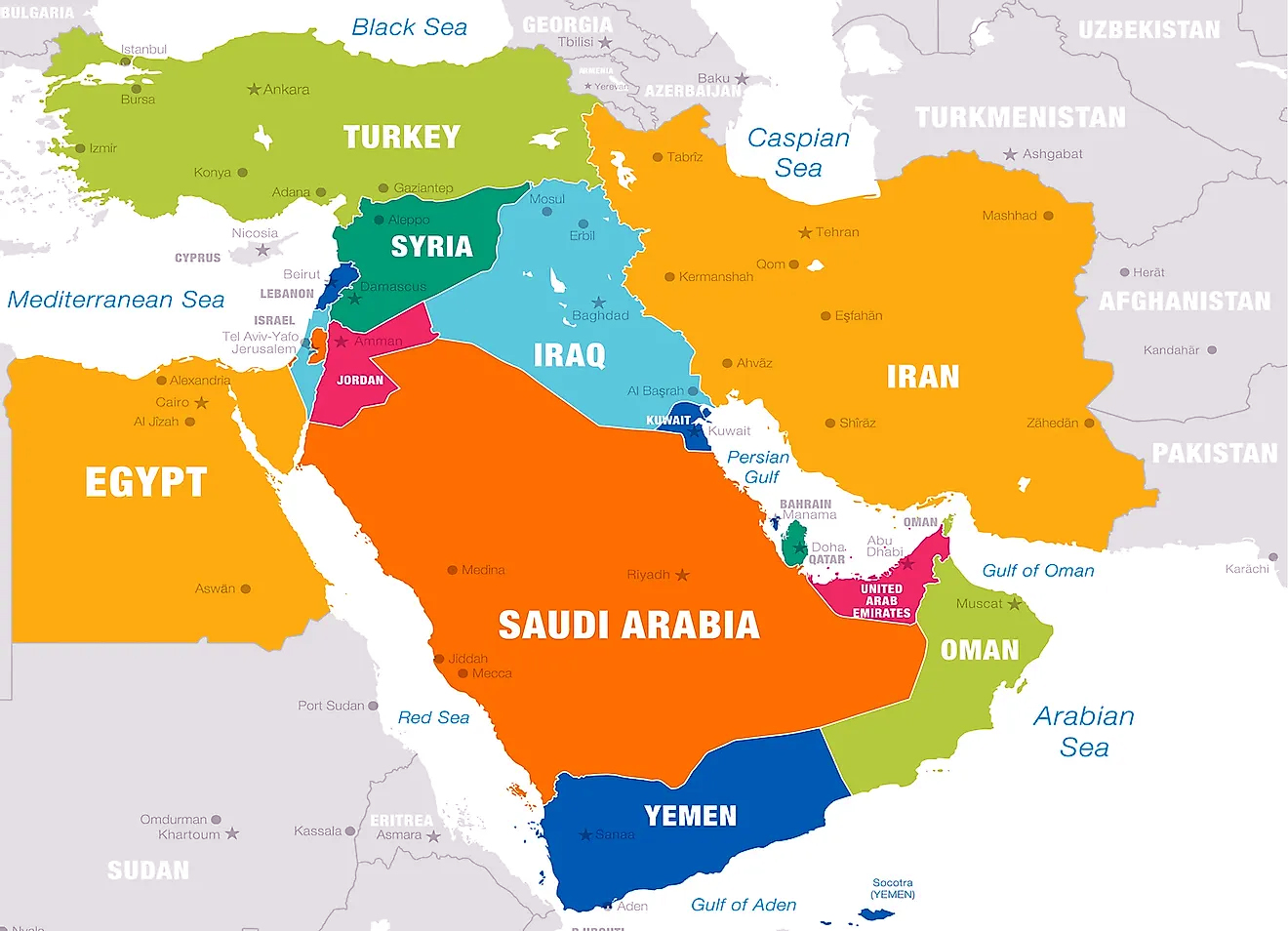International Relations
China-Iran Strategic Cooperation Pact
- 01 Apr 2021
- 5 min read
Why in News
China and Iran have signed a 25-year "strategic cooperation pact” which includes "political economic and strategic components".
- The agreement comes amid a major push from China to back Iran to deal with the continuing weight of sanctions reinstated by the US after its withdrawal from the Iranian nuclear deal.
Key Points
- About the Pact:
- It will deepen relations between Iran and China and would establish a blueprint for "reciprocal investments in the fields of transport, ports, energy, industry and services."
- It forms a part of China's trillion-dollar Belt and Road Initiative (BRI), a plan to fund infrastructure projects and increase its influence overseas.
- China's Growing Role in the Middle East:

- Iran relies on China as its largest trading partner.
- Chinese foreign minister, in his recent visit to West Asian nations, proposed a five-point initiative for achieving security and stability in the Middle East, advocating "mutual respect, upholding equity and justice, achieving non-proliferation, jointly fostering collective security, and accelerating development cooperation.”
- Earlier, China and Russia called for the US to unconditionally return to the Joint Comprehensive Plan of Action (JCPOA) as soon as possible and revoke the unilateral sanctions against Iran.
- In this context, they proposed "the establishment of a regional security dialogue platform to converge a new consensus on resolving the security concerns of countries in the region.”
- India's Concerns:
- Military Partnership: China is also concluding a security and military partnership with Iran.
- China calls for “joint training and exercises, joint research and weapons development and intelligence sharing” to fight “the lopsided battle with terrorism, drug and human trafficking and cross-border crimes”.
- The sizable Chinese investments in Iranian ports development may eventually be turned into permanent military access arrangements with Iran.
- Strategic Stakes Around the Chabahar Port: With a growing Chinese presence in Iran, India is concerned about its strategic stakes around the Chabahar port project that it has been developing.
- The port is close to Gwadar port in Pakistan, which is being developed by China as part of its China-Pakistan Economic Corridor that links it to the Indian Ocean through BRI.
- Geopolitical Rivalry: India finds itself caught in the geopolitical rivalry between the US & China over Iran.
- India’s dilemma also stems from the fact that robust support from the US is essential when it is locked in a border stand-off with China.
- Impact on Relationship with Other Countries: Growing Chinese footsteps in Iran will have a long-lasting impact on India’s relationship with not only Iran but also on Afghanistan and Central Asian nations.
- Military Partnership: China is also concluding a security and military partnership with Iran.
Joint Comprehensive Plan of Action
- In 2015, Iran with the P5+1 group of world powers - the USA, UK, France, China, Russia, and Germany agreed on a long-term deal on its nuclear programme.
- The deal was named as Joint Comprehensive Plan of Action (JCPOA) and in common parlance as Iran Nuclear Deal.
- Under the deal, Iran agreed to curb its nuclear activity in return for the lifting of sanctions and access to global trade.
- The agreement allowed Iran to accumulate small amounts of uranium for research but it banned the enrichment of uranium, which is used to make reactor fuel and nuclear weapons.
- Iran was also required to redesign a heavy-water reactor being built, whose spent fuel could contain plutonium suitable for a bomb and to allow international inspections.
- In 2018, the United States declared its withdrawal from JCPOA and imposed unilateral sanction on Iran.
- Iran has pulled away from restrictions imposed under the deal in order to put pressure on the other signatories — Germany, France, Britain, Russia and China — to provide new economic incentives to offset US sanctions.






